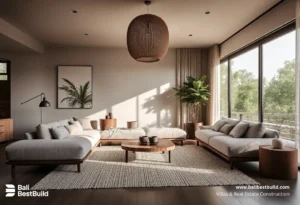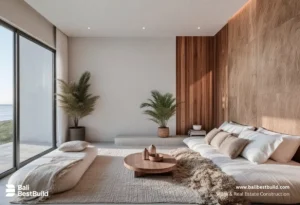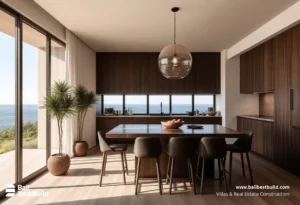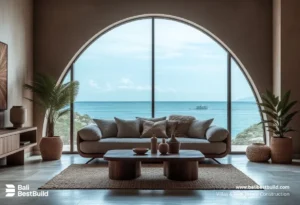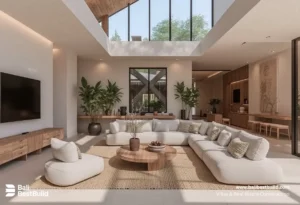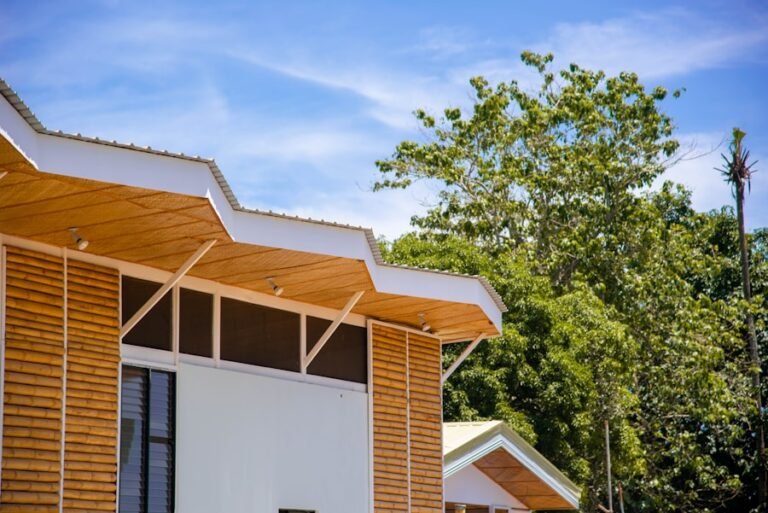The Balinese property market has been a hot topic in recent years, with many investors and expats looking to capitalize on the island’s booming real estate industry. The market has seen a steady increase in property prices, particularly in popular tourist areas such as Seminyak, Canggu, and Ubud. This surge in demand has been driven by a combination of factors, including the island’s growing popularity as a tourist destination, its relatively low cost of living, and the allure of owning a piece of paradise.
However, the Balinese property market is not without its challenges. Foreign ownership of land in Bali is restricted, with non-Indonesian citizens only able to lease land for a maximum of 25 years. This has led to a surge in demand for leasehold properties, which has in turn driven up prices. Additionally, the island’s infrastructure and utilities can be unreliable, with frequent power outages and water shortages in some areas. Despite these challenges, the Balinese property market continues to attract investors and expats looking to make a profit or find their dream home in paradise.
Renovating Your Bali Property: Pros and Cons
Renovating a property in Bali can be an exciting and rewarding experience, but it also comes with its fair share of challenges. On the positive side, renovating a property allows you to customize it to your exact specifications, creating a space that truly reflects your personal style and needs. It can also add value to your property, making it more attractive to potential buyers or renters in the future. Additionally, renovating a property can be a great way to breathe new life into an older or outdated space, bringing it up to modern standards and improving its functionality.
However, renovating a property in Bali also comes with its drawbacks. The process can be time-consuming and costly, particularly if you encounter unexpected issues or delays along the way. Finding reliable and skilled contractors and tradespeople can also be a challenge, as the island’s construction industry is still developing. Additionally, navigating the legal and permit requirements for renovations in Bali can be complex and confusing for foreigners. Despite these challenges, many expats and investors have successfully renovated properties in Bali, creating stunning homes and profitable investments in the process.
Rebuilding Your Bali Property: Is it Worth the Investment?
Rebuilding a property in Bali can be a significant investment, but for many homeowners and investors, the rewards outweigh the costs. Rebuilding allows you to start from scratch, creating a brand new space that is tailored to your exact specifications and needs. It also gives you the opportunity to incorporate modern design and construction techniques, improving the functionality and energy efficiency of your property. Additionally, rebuilding can add significant value to your property, making it more attractive to potential buyers or renters in the future.
However, rebuilding a property in Bali is not without its challenges. The process can be time-consuming and complex, particularly if you encounter issues with permits, zoning regulations, or environmental impact assessments. Finding reliable and skilled architects, engineers, and contractors can also be a challenge, as the island’s construction industry is still developing. Additionally, the costs of rebuilding can quickly add up, particularly if you encounter unexpected issues or delays along the way. Despite these challenges, many homeowners and investors have successfully rebuilt properties in Bali, creating stunning modern homes and profitable investments in the process.
Balinese Architectural Styles: Traditional vs. Modern
Balinese architecture is known for its unique blend of traditional and modern influences, creating a style that is both timeless and contemporary. Traditional Balinese architecture is characterized by its use of natural materials such as wood, stone, and thatch, as well as its intricate carvings and ornate detailing. Traditional Balinese buildings are often designed around open-air courtyards and pavilions, creating a seamless connection between indoor and outdoor spaces. Modern Balinese architecture, on the other hand, incorporates contemporary design elements such as clean lines, minimalist aesthetics, and modern materials like concrete and glass.
Both traditional and modern Balinese architecture have their own unique appeal. Traditional Balinese architecture reflects the island’s rich cultural heritage and spiritual traditions, creating a sense of harmony and tranquility. Modern Balinese architecture, on the other hand, offers sleek and sophisticated design elements that cater to the needs of contemporary living. Many homeowners and investors in Bali choose to blend traditional and modern architectural styles, creating spaces that honor the island’s heritage while embracing modern comforts and conveniences.
Sustainability and Eco-Friendly Options for Bali Properties
Sustainability and eco-friendly design have become increasingly important considerations for property owners and investors in Bali. The island’s natural beauty and fragile ecosystem make it essential to prioritize environmentally conscious building practices. Many homeowners and developers are incorporating sustainable design elements into their properties, such as solar panels, rainwater harvesting systems, natural ventilation, and green roofs. These features not only reduce the environmental impact of a property but also offer long-term cost savings on energy and water bills.
In addition to sustainable design features, many properties in Bali are also embracing eco-friendly building materials such as bamboo, recycled wood, and natural stone. These materials not only have a lower environmental impact than traditional building materials but also add a unique and organic aesthetic to a property. Furthermore, many homeowners are incorporating lush gardens and landscaping into their properties, creating green spaces that provide shade, improve air quality, and support local biodiversity. By prioritizing sustainability and eco-friendly design, property owners in Bali can create spaces that not only benefit the environment but also offer a healthier and more enjoyable living experience.
Legal and Permit Considerations for Renovating or Rebuilding in Bali
Navigating the legal and permit requirements for renovating or rebuilding a property in Bali can be complex and challenging for foreigners. The Indonesian government has strict regulations governing construction activities on the island, including zoning restrictions, building codes, environmental impact assessments, and permits for land use changes. Additionally, foreign ownership of land in Bali is restricted, with non-Indonesian citizens only able to lease land for a maximum of 25 years. This means that any major construction activities must be carefully reviewed and approved by local authorities to ensure compliance with all legal requirements.
It is essential for property owners and investors in Bali to work with experienced legal professionals who are familiar with local regulations and can guide them through the permit process. Additionally, it is important to engage reputable architects, engineers, and contractors who have a strong understanding of local building codes and can ensure that all construction activities are carried out in compliance with legal requirements. By taking a proactive approach to legal and permit considerations, property owners in Bali can avoid costly delays or legal issues during their renovation or rebuilding projects.
Finding the Right Professionals for Your Bali Property Project
Finding the right professionals for your Bali property project is essential for ensuring its success. Whether you are renovating or rebuilding a property, it is important to work with experienced architects, engineers, contractors, and legal professionals who have a strong understanding of local regulations and building practices. When selecting professionals for your project, it is important to conduct thorough research and due diligence to ensure that they have a proven track record of delivering high-quality work on time and within budget.
One of the best ways to find reputable professionals for your Bali property project is through word-of-mouth recommendations from other homeowners or investors who have completed similar projects. Additionally, it is important to interview multiple professionals and ask for references before making any hiring decisions. It is also essential to ensure that all professionals you work with are properly licensed and insured to protect yourself from any potential liabilities or legal issues down the line. By taking the time to find the right professionals for your Bali property project, you can ensure that your renovation or rebuilding project is completed to the highest standards of quality and compliance with local regulations.
In conclusion, the Balinese property market offers both opportunities and challenges for investors and homeowners looking to renovate or rebuild their properties. The unique blend of traditional and modern architectural styles in Bali provides endless possibilities for creating stunning homes that honor the island’s rich cultural heritage while embracing contemporary design elements. However, navigating legal requirements, finding reliable professionals, and prioritizing sustainability are essential considerations for anyone looking to undertake a property project in Bali. With careful planning and the right team of professionals by your side, renovating or rebuilding a property in Bali can be a rewarding experience that results in a beautiful home or profitable investment.

